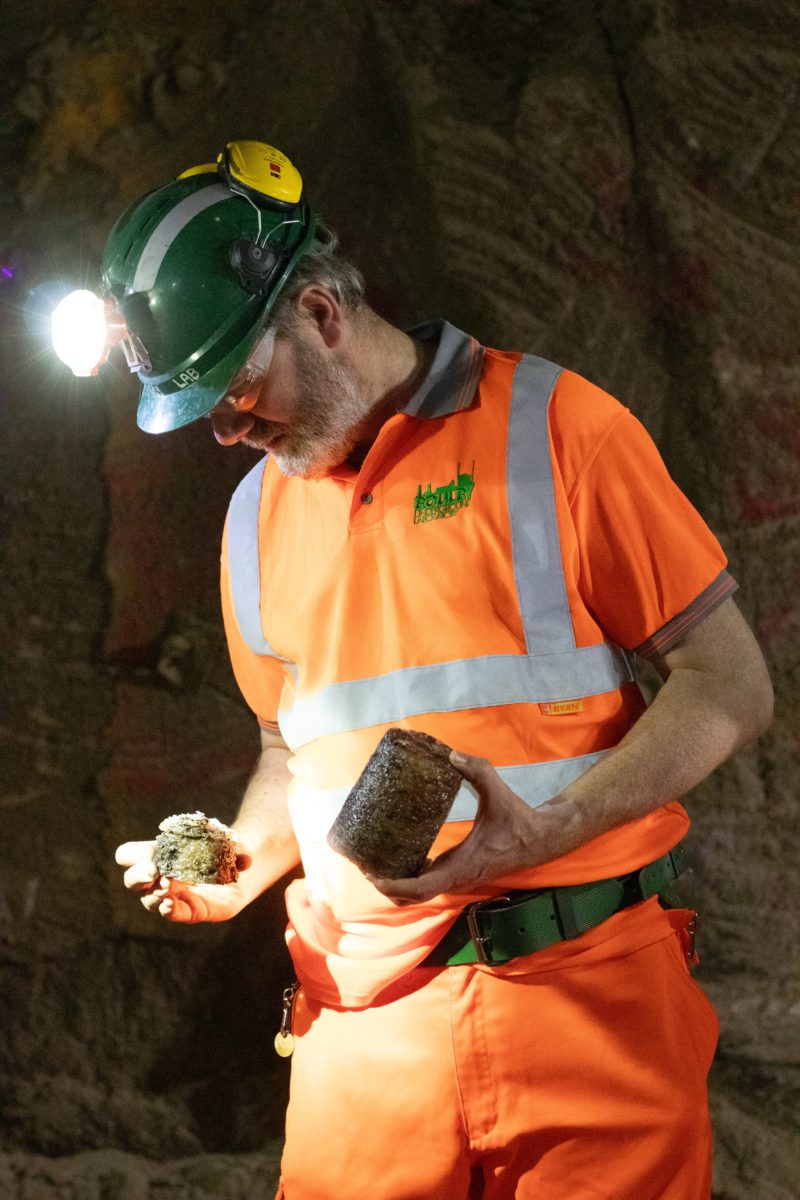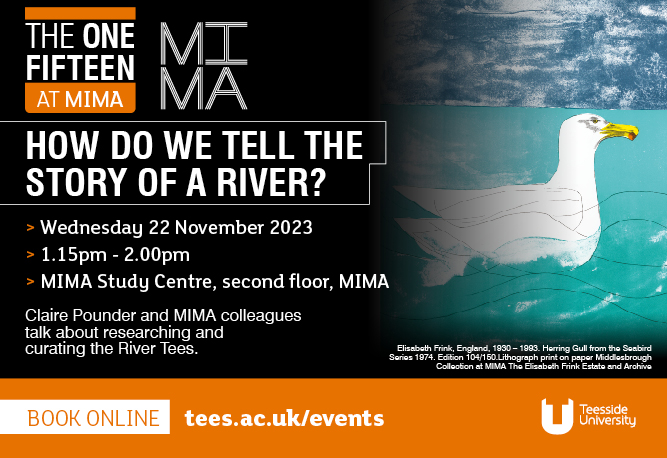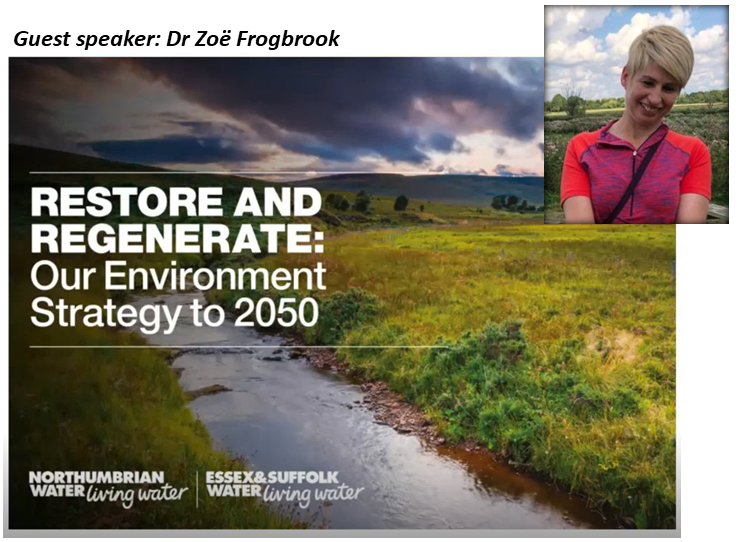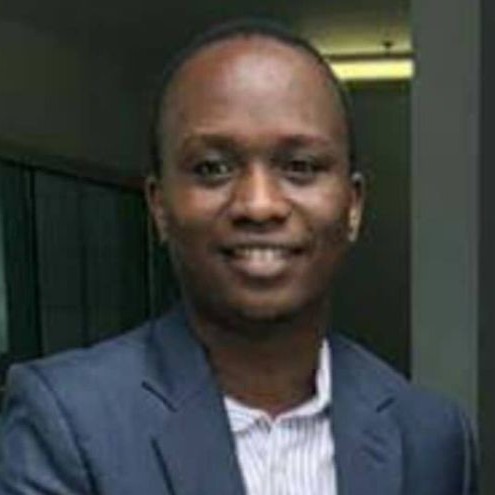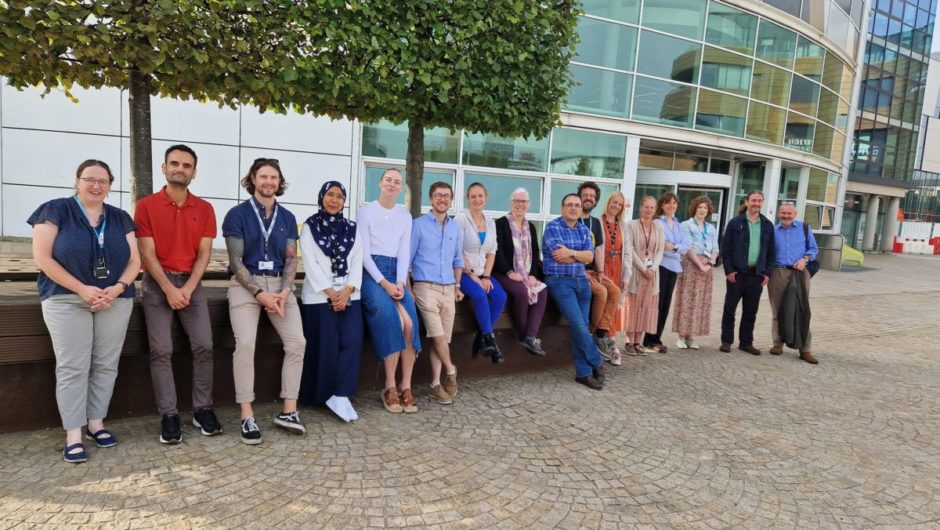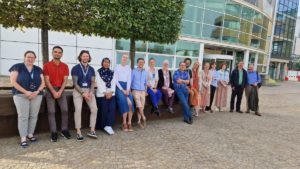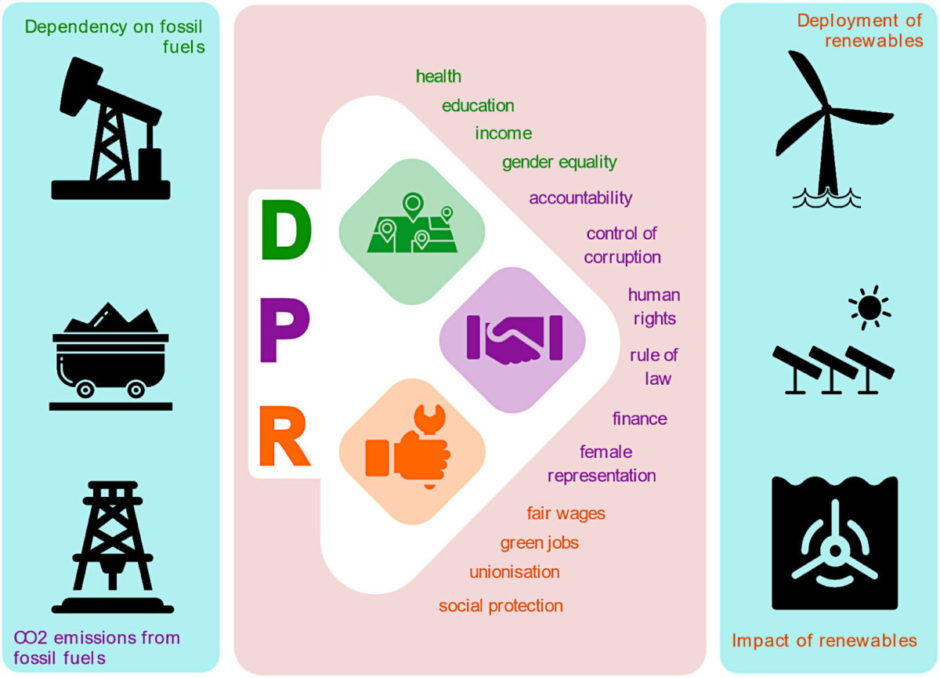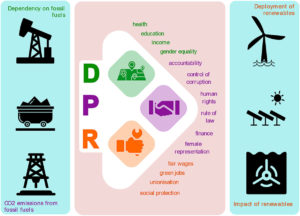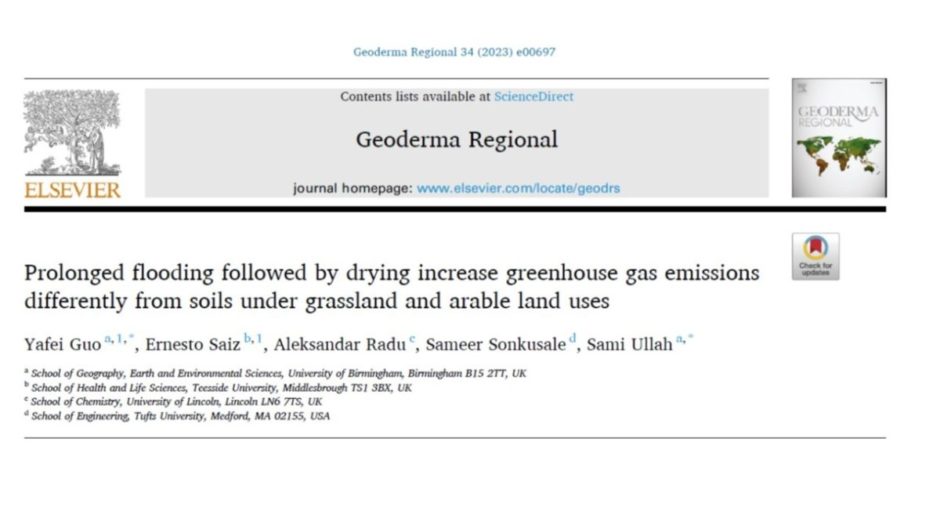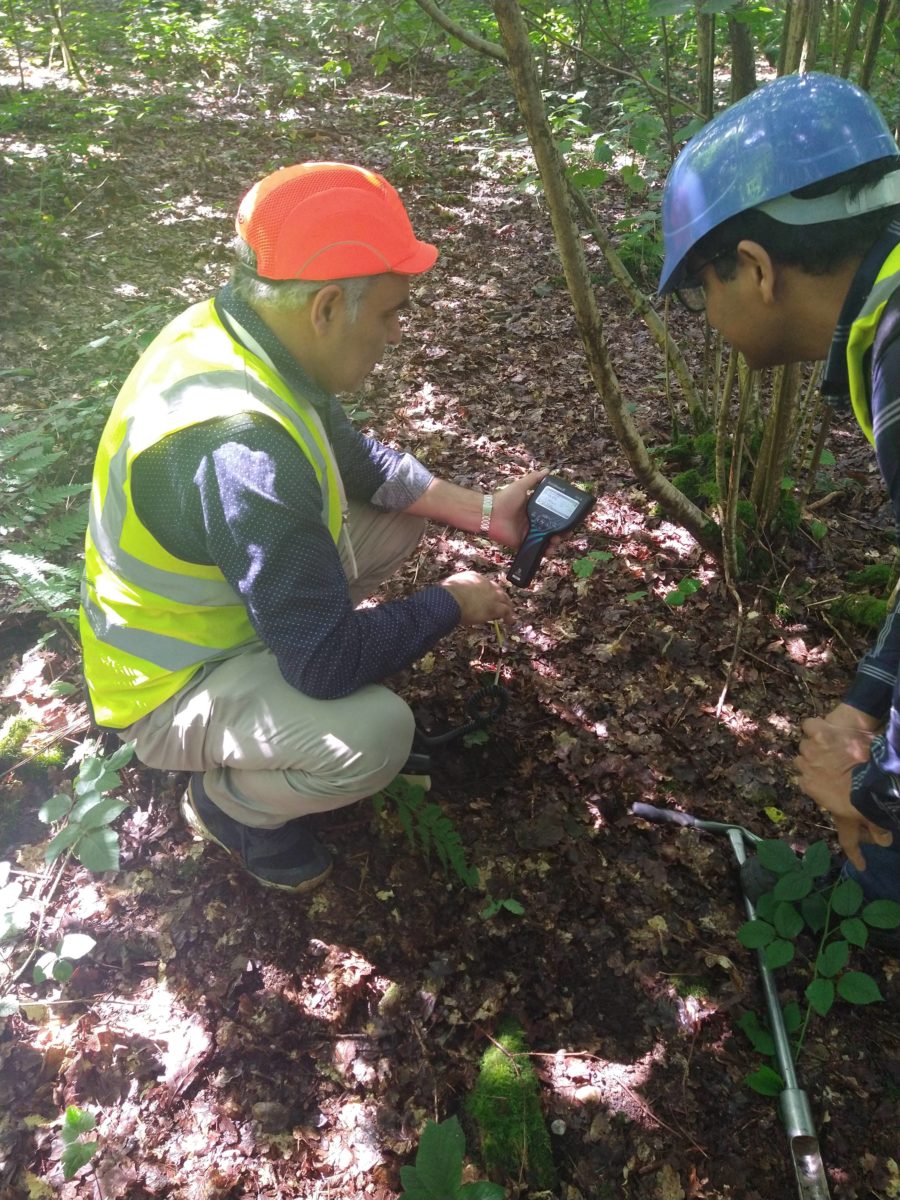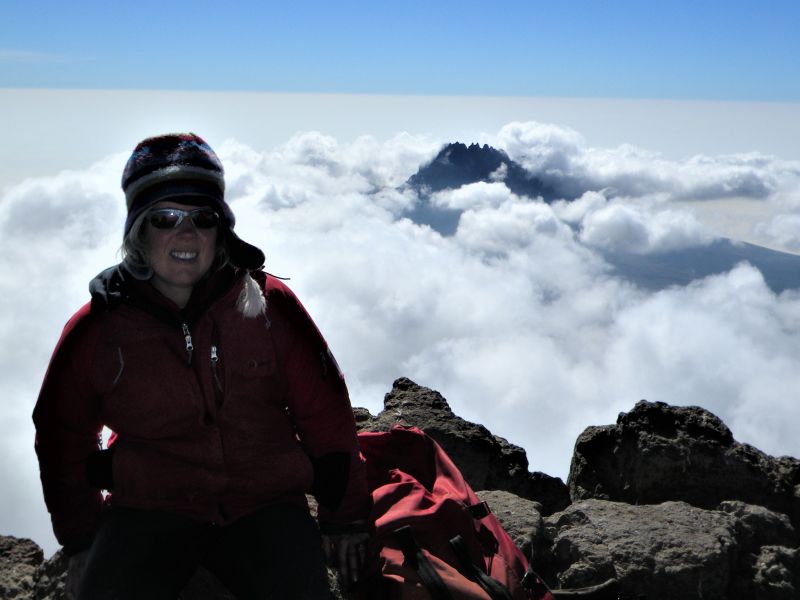Last week, a team around Dr Jens Holtvoeth , including 3rd-year BSc students Connor Bishop and Matthew Oliver Jinks and environmental technician Miles Dimbleby, took part in this year’s Mine Analogue Research event (MINAR XI) at the UKRI Underground Laboratory in the ICL Polyhalite and Salt mine at Boulby. Every year, this two-week event brings together national and international teams of scientists, working on a wide range of subjects related to space exploration and extreme environments, for which the Underground Lab and its surroundings 1,000m below the surface provide ideal conditions.
The purpose of Team Teesside’s visit was to drill and recover intact large diameter salt cores from the so-called polygon layer. This deposit formed in the late Permian during the evaporation of the Zechstein Sea, about 250 million years ago, and is the main layer of halite (NaCl) at Boulby. It prominently features backfilled desiccation cracks from a sea-level lowstand that now appear as dark polygons in the ceiling of the many tunnels in the mine. Traces of organic matter preserved in the salt and the backfill material carry information on the microbial communities living in the brine at the time and the vegetation on the nearby land, which reflect the environmental conditions.
One of the aims of Dr Holtvoeth’s research is to produce a biogeochemical fingerprint of microbial biomass preserved in the ancient evaporites and to see how this relates to microbes living in modern brines in the mine. The modern microbial community will be further characterised through their DNA, which is the responsibility of Dr Caroline Orr. Such a biogeochemical characterisation will help collaborators at NASA’s Jet Propulsion Laboratory to interpret data produced from the same sample material by an optical analytical tool (Raman spectrometer), which they are currently developing for the next generation Mars rover. If microbial life ever existed on Mars, the evaporating Martian oceans would have been the last places where it could have been found. Thus, evaporites are a prime study target in the search for life on Mars.
A number of technical issues have hampered progress so far. Last week, the team had to abandon their sampling campaign due to electrical problems. It turns out that drilling and recovering a large-diameter salt core is a lot harder than anyone had anticipated. However, with the continuing support of the UKRI Underground Laboratory and the mine operators the team hopes to succeed next time.


